When Lola Clark was 11 months old, doctors diagnosed her with cerebral palsy.
The youngster had suffered a lack of blood flow and oxygen to her brain during birth – requiring urgent medical attention.
She was quickly moved to hospital in Inverness, then spent 13 days at the neonatal unit in Aberdeen before returning home to Elgin with parents Lauren and Ross.
At that point, they weren’t sure how her ordeal would affect her in later life.
Lauren explained: “We were told there was a possibility she would have cerebral palsy, but it’s a ‘wait and see’ thing as it affects everybody so differently.
“She had scans in hospital which showed she had suffered a brain injury, but we wouldn’t know how it would affect her until she was older.
“So we tried to just be as normal as possible, with this in the back of our minds.”
‘She went from smiling and giggling to losing it’
As a baby, Lola cried a lot and struggled with reflux.
And around six months in, began to suffer from infantile spasms – a rare type of epilepsy that can cause more brain damage.
“She regressed a lot,” Lauren said.
“Lola went from being able to smile and giggle to losing that, and it was painful for us all.”
The tot was given an intense steroid treatment which stopped the seizures, and her parents are relieved they haven’t returned.
Then, at 11 months, Lola was diagnosed with cerebral palsy, a lifelong condition affecting movement and co-ordination.
Specialists looked at certain milestones, like her being able to lift her head independently or sitting up, to make the judgement.
‘You enter a world you don’t know exists’
Lauren admits that, while she’d heard of cerebral palsy, she didn’t really know anything about it before Lola was born.
“For the first year, it wasn’t the same experience that other parents have,” she said.
“We didn’t get to do baby groups, she was far too unsettled.
“And you could see other children progressing and Lola wasn’t, which was really tough – and I imagine a lot of parents in a similar position would say the same thing.
“You enter a world you don’t know exists, where you have all these professionals coming to your house and assessing your child.”
She added: “You adapt, and you learn you’re living a different life than what you expected.
“Seven years on you’re in a different place emotionally than you were in the first year, but it’s still challenging.”
‘You realise how inaccessible the world is’
Unfortunately most of the support for Lola, who turned seven this week, and others with cerebral palsy, is based much further south than Elgin.
The family have had a lot of help from charity Cerebral Palsy Scotland, travelling to Glasgow for the likes of physio, speech and language therapy.
At home they get help from social workers, with a personal assistant who spends time with Lola, giving Lauren and Ross a chance to do other things.
But an overall lack of activities is making life difficult.
Lauren said: “You realise how inaccessible the world is – even going to a park is hard.
“Some of them have wheelchair-accessible swings, but not many.
“Our youngest daughter can play on things but Lola can’t – this summer she was bored as there was nowhere to play with her friends.”
‘Life is tough – but it’s so lovely’
She added: “People with disabilities deserve what everyone else gets to do.
“Lola spends time in a mainstream class at school and loves it – and it’s gorgeous to see pictures of her with her friends and it’s so valuable for them.
“They learn that not everyone is the same.
“Her life is tough, tougher than most, and I gave up my job as a social worker to be an unpaid carer.
“But our life is so lovely.
“We’ve realised, the older Lola’s getting, that the world isn’t made for children, and all people, with physical disabilities.
“I hope more people can be aware that even the simple things aren’t easy for everybody.”
Call for greater support
The Elgin family are backing a call from Cerebral Palsy Scotland for a nationwide register of people with the condition.
The charity says this will help identify how many people are in need of support, with many unaware of the help on offer.
It would also give a better idea of the areas where support could be better targeted.
For more information visit cerebralpalsyscotland.org.uk
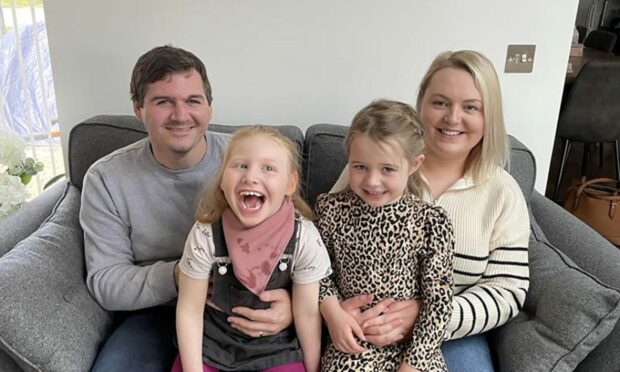
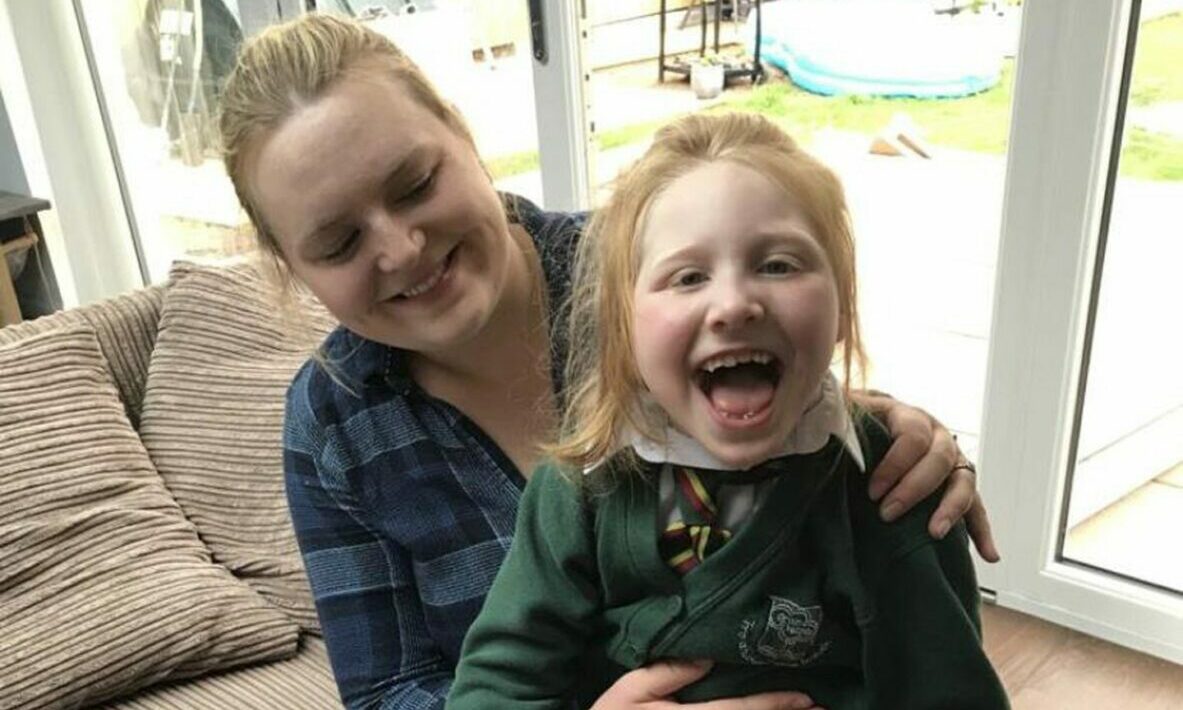
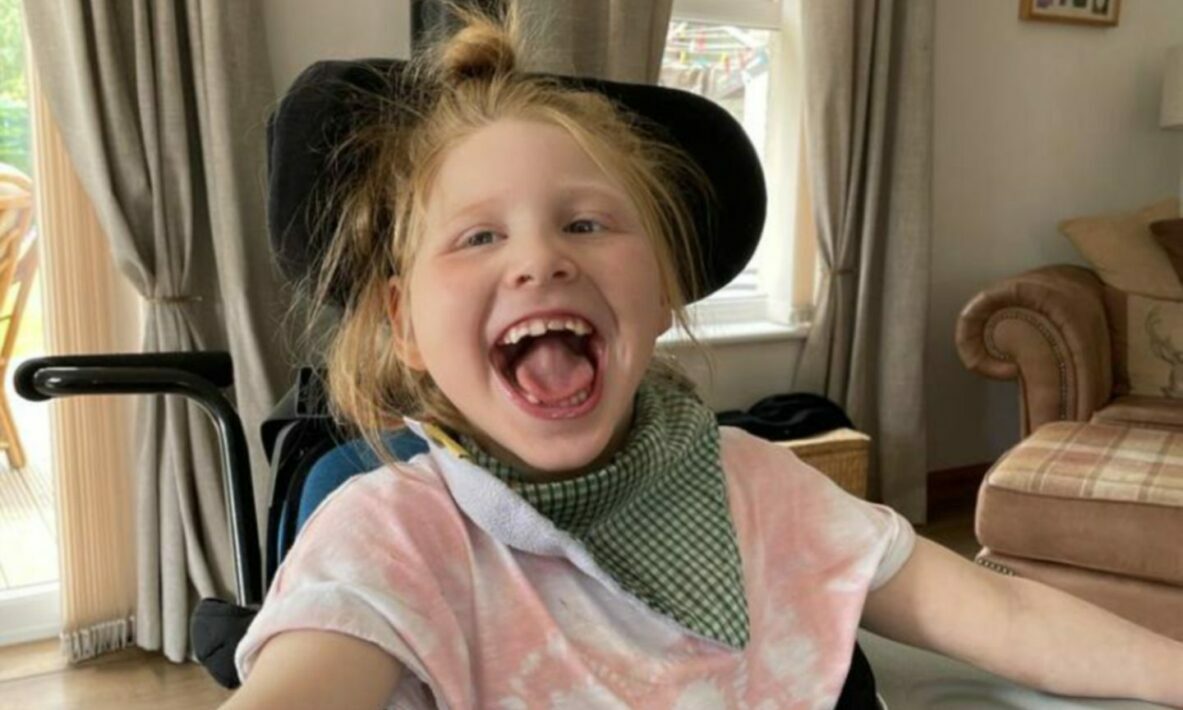
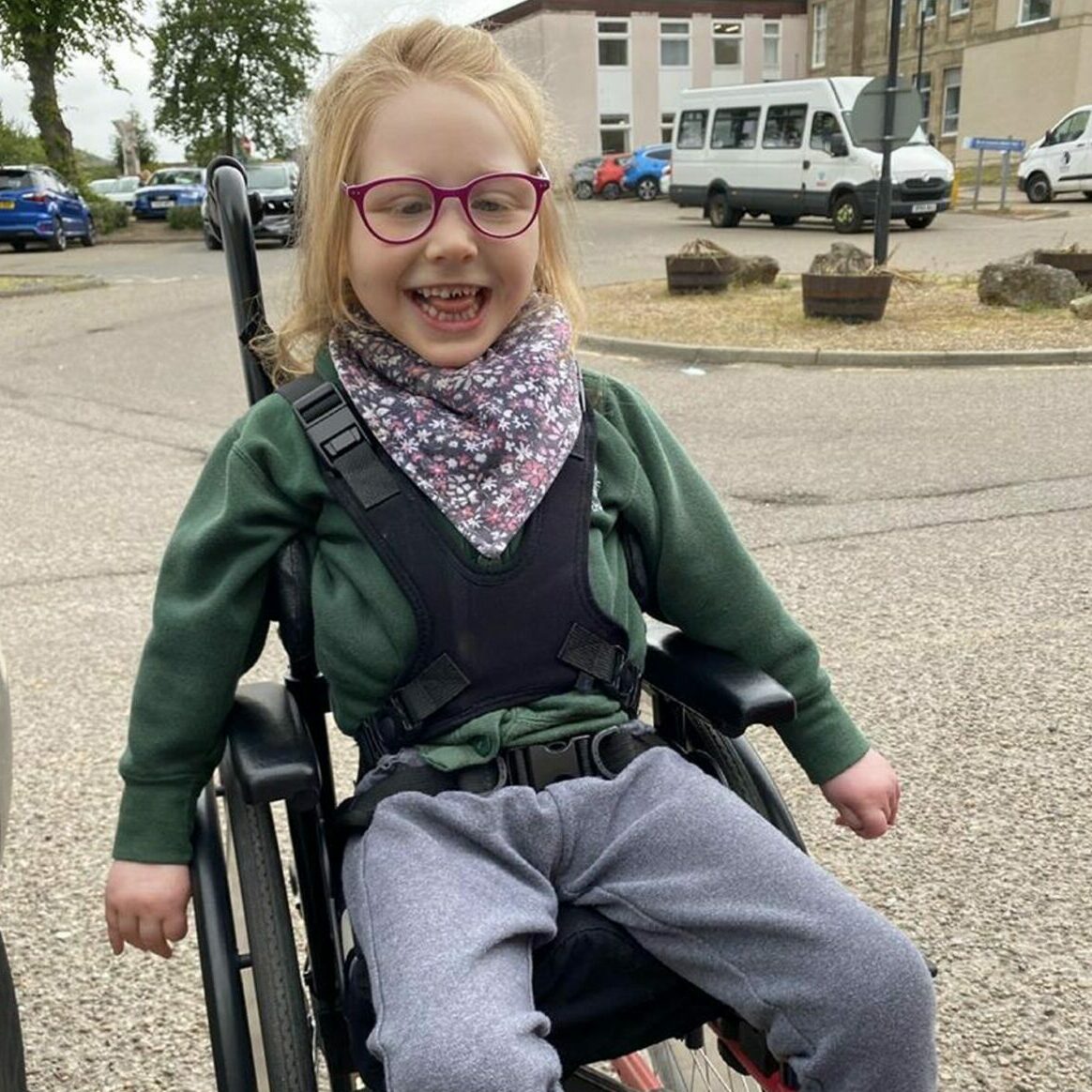
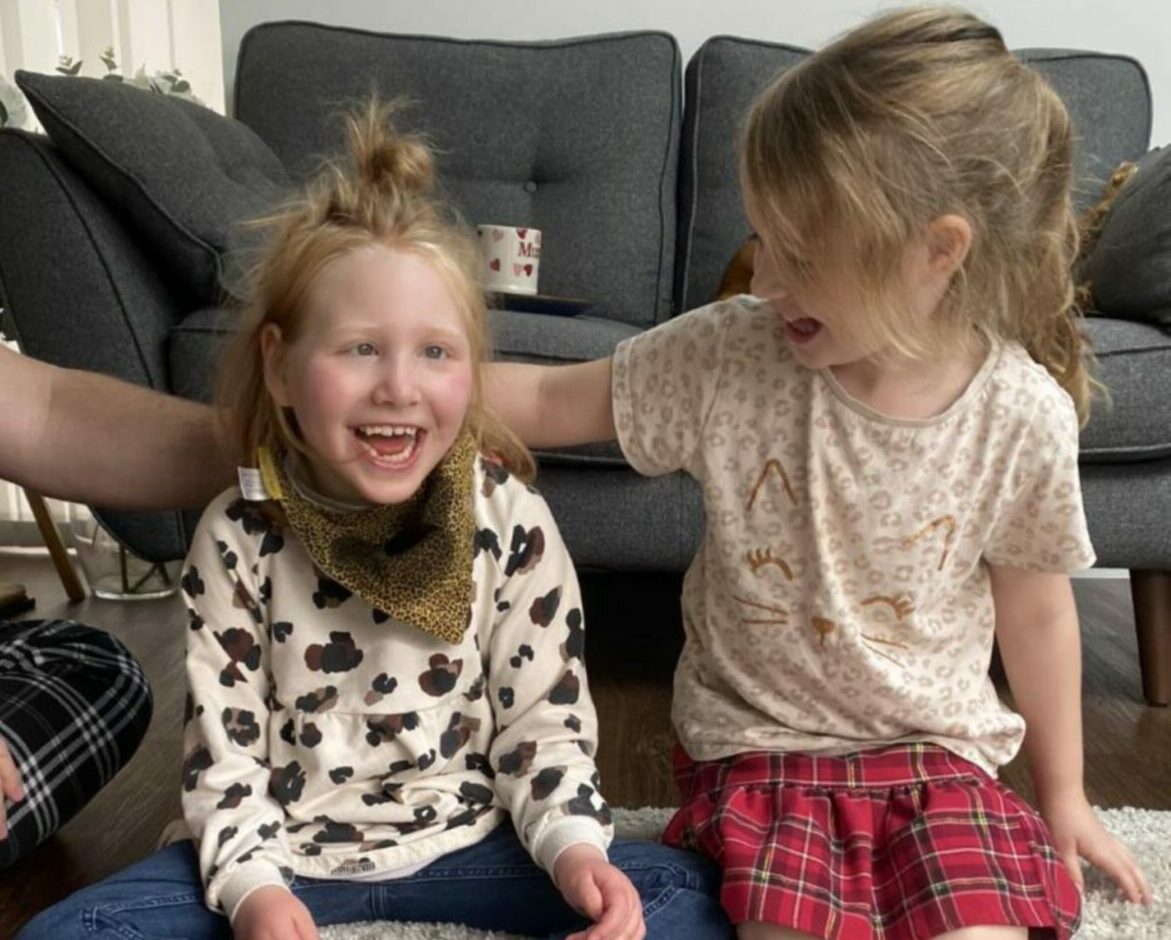
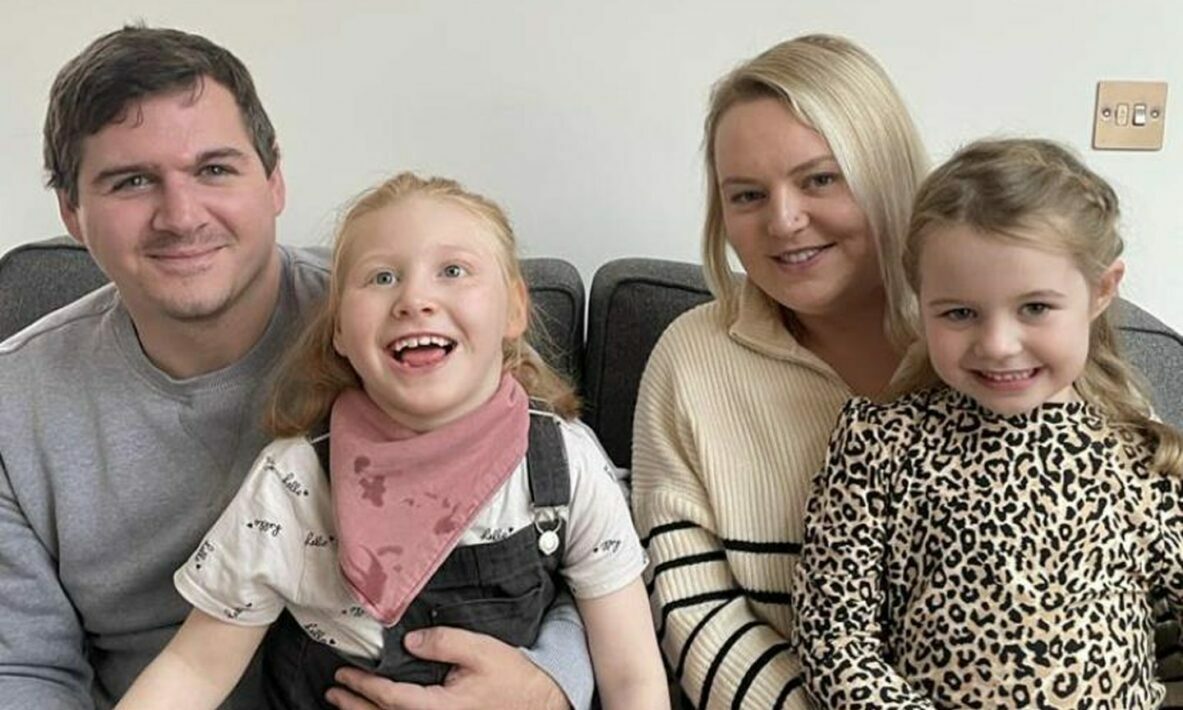
Conversation